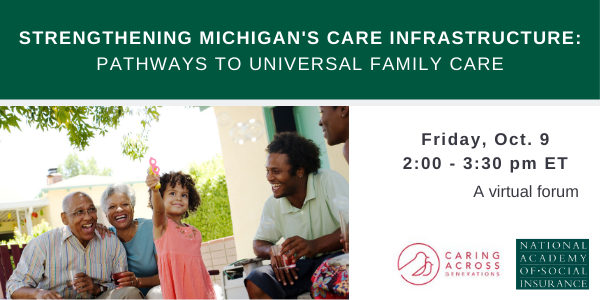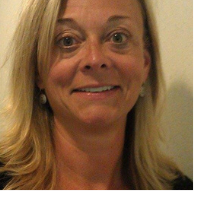
The COVID-19 pandemic has highlighted the inadequacy and inequality in our country's care infrastructure. A patchwork of programs exists at the state and federal level to help low- and middle-income families pay the costs of early childcare and education, long-term services and supports, and taking time off work to care for a loved one, but these programs are chronically underfunded and inaccessible to many. The COVID-19 federal legislation provides relief for millions of Americans during this time of crisis, but there are significant gaps. The challenge of balancing work, health, and family responsibilities will continue after the current pandemic for workers across the country.
The COVID-19 expansion of federal paid leave is temporary, and the underlying state and federal programs will continue to fail to serve a significant share of even the fraction of families with sufficiently low income to qualify. Needs are growing for services and supports for the long-term care of both older adults and adults living with disabilities and many middle-class families are becoming less able to meet them. Facing these care challenges, states are looking for new strategies.
The National Academy of Social Insurance (the Academy) and Caring Across Generations recently released a comprehensive study of viable approaches for states interested in pursuing universal child care, paid family and medical leave, and long-term services and supports policies. At this forum, authors of the study shared their analyses and policy options. Michigan-based experts then discussed the implications of this research for policymakers seeking to strengthen the care infrastructure for Michiganians.
[WPSM_AC id=1053]
Presentations:
Early Child Care and Education & Paid Family and Medical Leave, Alexandra Bradley
Long-term Services and Supports & Universal Family Care, Marc Cohen
Download the report and see supplemental materials: Designing Universal Family Care: State-Based Social Insurance Programs for Early Child Care and Education, Paid Family and Medical Leave, and Long-Term Services and Supports.
Speakers
 Sherri Boyd
Sherri Boyd
Executive Director, the Arc Michigan
 Alexandra Bradley
Alexandra Bradley
Lead Policy Analyst, Caregiving Study Panel
 Marc Cohen
Marc Cohen
Co-Director, LeadingAge LTSS Center at UMass Boston; Professor of gerontology, University of Massachusetts Boston; Research Director, Center for Consumer Engagement in Health Innovation, Community Catalyst
 Henrietta Ivey
Henrietta Ivey
Home Health and Personal Care Professional
 Oriana Powell
Oriana Powell
Childcare Organizer, Mothering Justice
 Alexis Travis
Alexis Travis
Senior Deputy Director, Aging and Adult Services, Michigan Department of Health and Human Services
 Moderator: Yulya Truskinovsky
Moderator: Yulya Truskinovsky
Assistant professor of economics, Wayne State University
Topics
|
Contact
|
